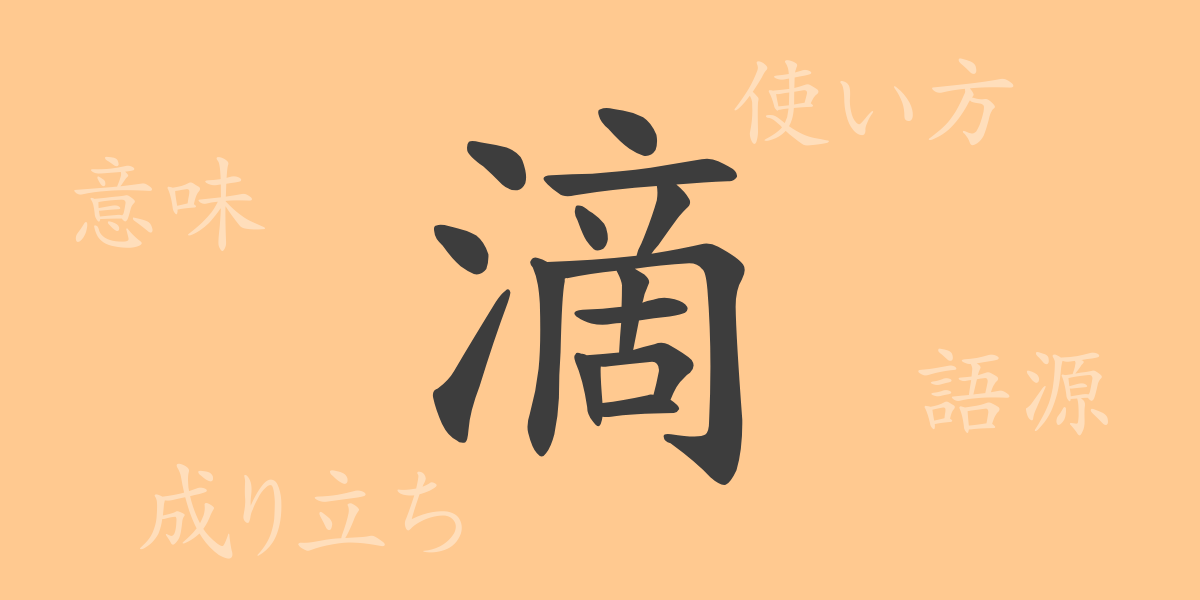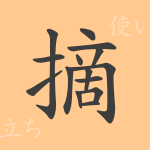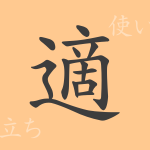Kanji, integral to Japanese culture, encapsulates both form and profound meaning. ‘滴(テキ)’, commonly used in everyday life, symbolizes the beauty and tranquility of nature, as seen in droplets falling from leaves. This article explores the Kanji ‘滴’, from its origins to its usage in idioms and proverbs, uncovering the depth of its allure and its embedded cultural significance.
Origins of ‘滴(テキ)’
The Kanji ‘滴’ originated from ancient China as a pictograph representing a droplet of water falling downward. Its early form can be seen in oracle bone scripts, where it depicted the action of raindrops falling. Over time, it evolved into the current character, capturing the essence of life and the cyclical nature of the natural world in a single character.
Meaning and Usage of ‘滴(テキ)’
‘滴’ primarily describes the action of a liquid forming small droplets. It is used in terms such as ‘水滴(すいてき)’ (water droplet) and ‘雫(しずく)’ (droplet), capturing the moment water gathers and falls in droplets. It also appears in metaphorical expressions like ‘汗の滴(あせのしずく)’ (sweat droplet), symbolizing the crystallization of effort and toil.
Readings, Stroke Count, and Radical of ‘滴(テキ)’
‘滴’ is known for its readings and structural components:
- Readings: On’yomi ‘テキ’, Kun’yomi ‘しずく’, ‘したた.る’
- Stroke Count: 14 strokes
- Radical: 水 (みず, さんずい)
Phrases, Idioms, and Proverbs Using ‘滴(テキ)’
Many idioms and proverbs include ‘滴’, each imbued with deep meaning. For instance, ‘一滴の露(いってきのつゆ)’ highlights something extremely small or minute. ‘滴水穿石(てきすいせんせき)’ (water droplets penetrate stone) illustrates how consistent small efforts can achieve significant results. ‘血の滴る(ちのしたたる)’ depicts situations of intense labor or pain.
Conclusion on ‘滴(テキ)’
The Kanji ‘滴’ beautifully captures the essence of minute natural phenomena, yet it is extensively used across various contexts in daily life and culture. Its imagery resonates deeply with our emotions and experiences, enhancing the expressive power of language. The presence of ‘滴’ in everyday moments serves as a rich source of expression, enriching our interaction with the world around us.

























